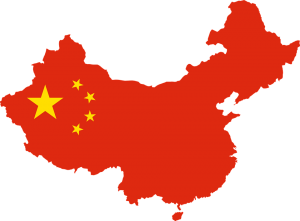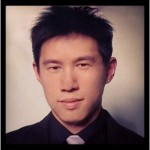By Justin Chiu
Translation: Davina P. Durgana
Passage au crible n°60

Pixabay
On February 4th, 2012, China and Russia vetoed a Security Council draft resolution condemning UN repression in Syria. Beginning in Derra in March 2011, the Syrian revolt has already killed over 8,000 civilians. Videos showing the bloody repression – including Homs – which were broadcast worldwide via the Internet, have not gone unnoticed in China. Many intellectuals, for example, question the decision of their government. The official arguments – Reason of State and the principle of non-interference – no longer seem like legitimate comments as social networks have demonstrated. Following the emergence of public opinion in China, authorities are forced to evolve. Thus on February 14th, 2012, Prime Minister Wen Jiabao said he was ready to discuss the situation in Syria.
> Historical background
> Theoretical framework
> Analysis
> References
The Arab Spring awoke the repressed affects and emotions of the Chinese population. Recall that in 1989, students who demanded more democracy and freedom were violently repressed by the regime. Beginning in the late sixties, the economic reform and open policy of Deng Xiaoping had resulted in a minimum of public space throughout the eighties to the point that this decade has proven exceptionally rich in political debates and intellectuals. However, after the repression at Tiananmen Square, political demands were forcibly disappeared social movements. The strict state control, improvement of living standards and the weakening of external support prompted the heirs of the democratic movement to promote the emergence of a civil society based on the protection of civil rights.
According to the Chinese government, the collective number of incidents rose from 8,700 incidents in 1993 to 74,000 in 2004. Emphasize in this case that social movements represent all social strata because the Chinese have had their lives disrupted by the dismantling of the Communist social system and the integration of their countries in globalization. Now, the protests come both from workers, city dwellers, peasants, servants or the unemployed: they are very heterogeneous. Meanwhile, the awareness of civil rights in an enriched China, legislators in general and lawyers in particular have become not only stakeholders of civil society, but their spearhead. At the turn of the twentieth century, the construction of a rule of law stands at the heart of the Chinese Communist Party propaganda. Facing international pressure, the notion of human rights was official adopted in 2004 at the 12th Congress of the National Assembly Party.
Considered as a security threat, the new social media from foreign countries are censored or banned outright in China. Yet, contrary to what one might think, the social networking market is now flourishing and highly competitive. Nevertheless, some private actors dominate the world of 513 million Internet users. In this case, Tencent (established in 1999 and the equivalent of MSN Messenger), RENN (the equivalent of Facebook created in 2005) and Weibo (created in 2009 between Facebook and Twitter).
1. Increased awareness of human rights. The economic and institutional reforms, initiated over three decades ago, have enabled the development of the Chinese economy and have significantly improved the lives of a majority of the population. However, GDP growth cannot hide social inequalities, regional disparities and profound environmental degradation in the Middle Kingdom. All the less they are now largely borne on the web. Well educated and rich, the Chinese tolerate the increasingly bad and miserable situation of the poor and demand the respect they deserve as human beings.
2. The mounting strength of civil society through social networks. Considering efficiency, low cost of intermediation and powerful means of communication that crystallizes the Internet, we understand better then that it has become an empowering and valuable tool for large segments of the population. With the Internet, the relationship between time and distance between civil society and the state are radically changed. That is why the state actor must find new sources of legitimacy and new ways of governing the face of criticism from civil society.
Asserting itself as a leader of emerging countries, China does not hesitate to express a different view from Western countries, as we saw at the Copenhagen Conference on climate change in 2009. Second, nationally, it must pass this year’s political transition by placing Xi Jinping at the head of the party-state. In this sensitive period, the government cannot support an international project that would overthrow an authoritarian regime.
Although messages of compassion multiply on social networks, this does not mean that all Chinese recognize the democratic demands of the Syrian opposition. In fact, Chinese society especially disapproved of his government because it prohibits Syrians any possibility of external assistance and supports a repressive regime. But the debate over the Syrian situation quickly finds its limits since a few days after the veto, Chinese Internet users are already fascinated by other major events.
Critics of the press and intellectuals are not absent in China. Nevertheless, the one who cannot exercise self-sufficiency and crossing the red line is still insignificant. Indeed, they risk being accused of crimes of subversion, such as was the case of Professor Gui Quan who denounced the management of the Sichuan earthquake in 2009.
Democratization of the Internet is a major issue for people and concern for the Chinese government. That is why 30,000 service officers of the Ministry of Information exercised continuous censorship. However, this activity appears increasingly ineffective under the massive number of users. To avoid skidding, the social networking sites are supposed to monitor their users. Thus, the messages published in Tibetan on Weibo are systematically monitored. Last December, the Chinese state required micro-bloggers to register under their real names. This measure was directed to the 200 million users of Weibo. However, the incessant responses mini-bloggers had against this interference with their privacy were enough to demonstrate an increased awareness of human rights in China.
Chen Yingfang, « Les mouvements de protestation des classes moyennes », in: Jean-Louis Rocca (Éd.), La Société chinoise vue par ses sociologues, Paris, Presses de Sciences Po, 2008, pp. 187-219.
Elias Nobert, La société des individus, trad., Paris, Fayard, 1991.
Laroche Josepha, La Brutalisation du monde, du retrait des États à la décivilisation, Montréal, Liber, 2012.
Merklé Pierre, La Sociologie des réseaux sociaux, Paris, La Découverte, 2010. Coll. Repères 398.
Nangfang Zhoumo (南方周末 ou Southern Weekly) : http://www.infzm.com/ Pedroletti Brice, Bougon François, « Le veto de Pékin sur la Syrie critique en Chine », Le Monde, 8 Fév. 2012.
Rosenau James N., Turbulence in World Politics: a Theory of Change and Continuity, Princeton, Princeton University Press, 1990. Simmel Georg, Les Pauvres, trad., Paris, PUF, 1998. Zheng Youngnian, « China and Democracy: Not a Contradiction in Terms », in: John Wong, Bo Zhiyue (Éds.), China’s Reform in Global Perspective, Singapore, World Scientific Publishing, 2010, pp. 13-53.




